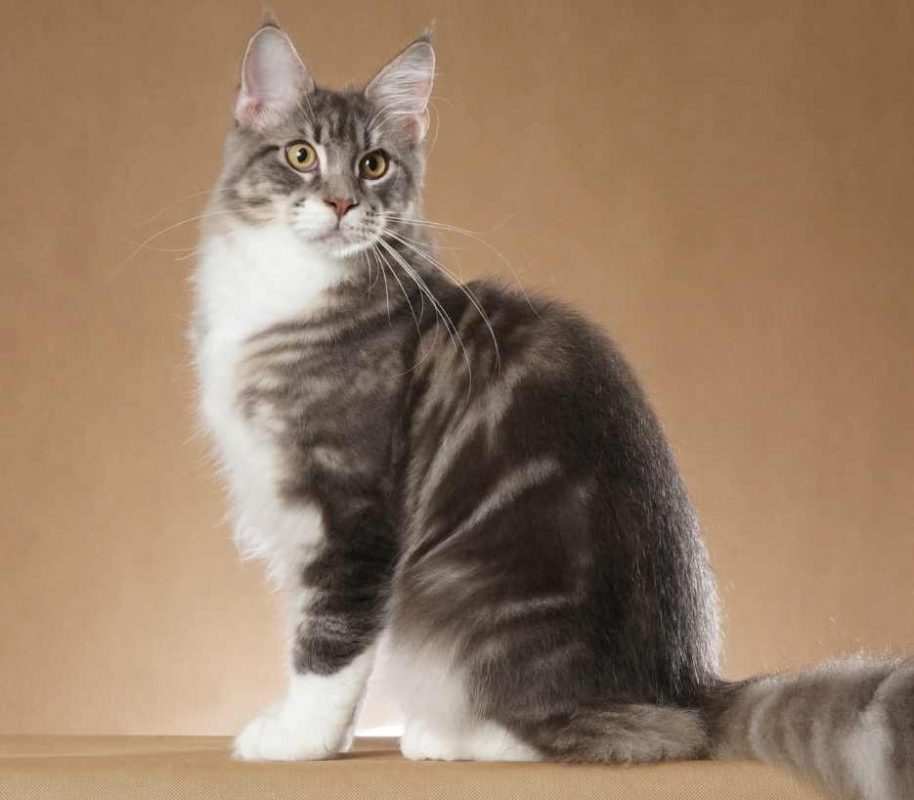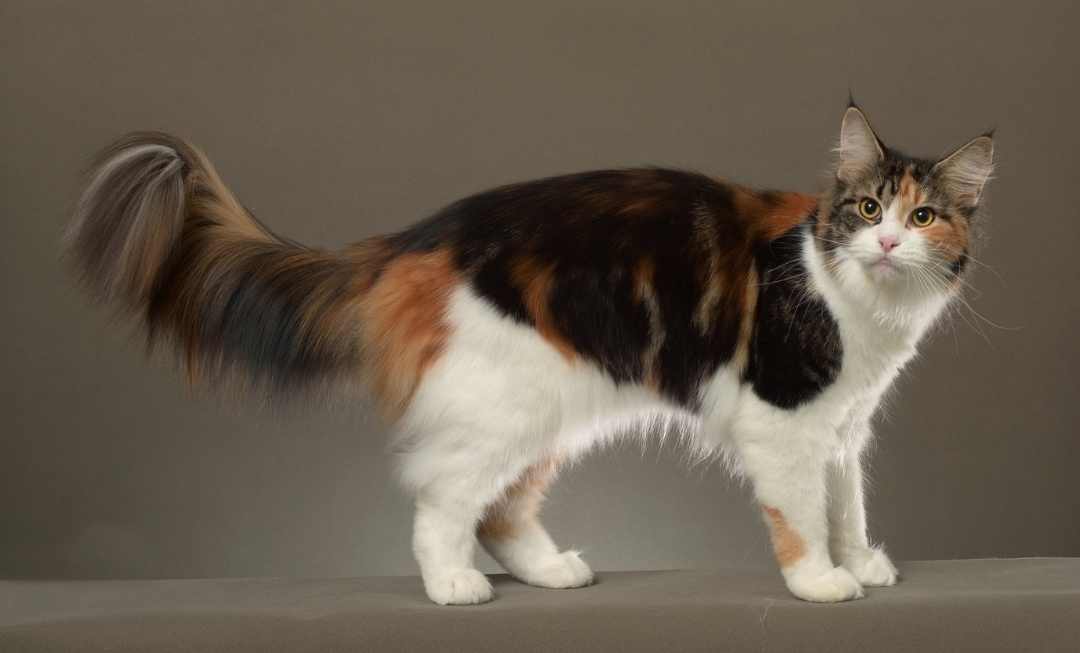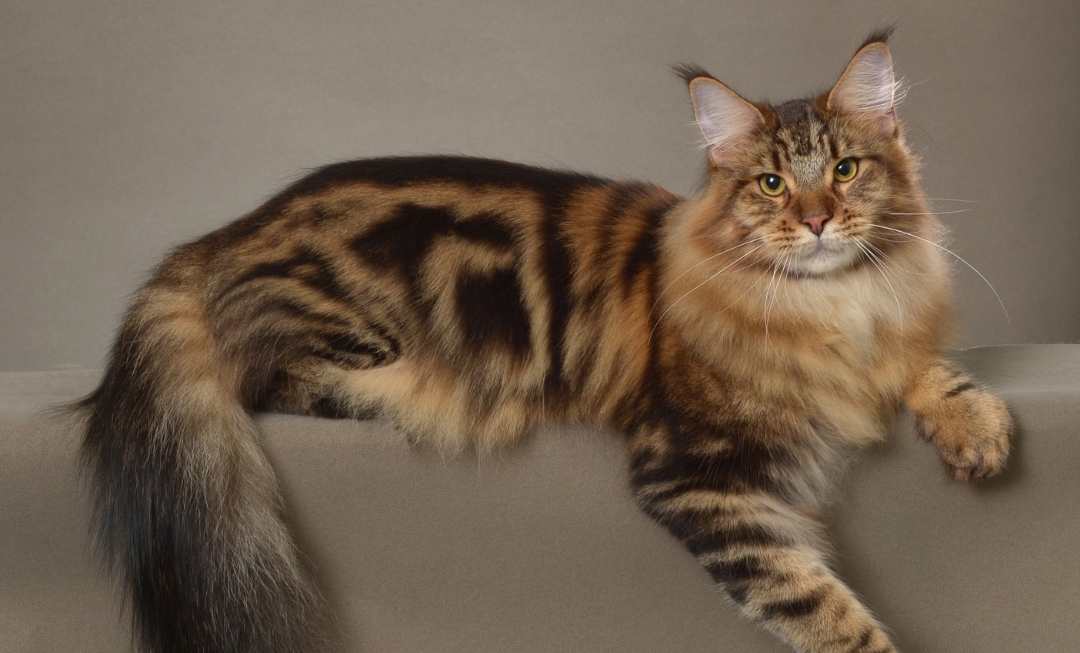
Meet the Maine Coon, the majestic feline from New England that has captured hearts for generations. Originating from Maine, this breed has served as mousers, farm cats, and ship companions since the early 19th century. Known for their impressive size, these cats can grow over four feet long, holding the record for the world’s longest house cat.
But size isn’t everything. Maine Coons are affectionate without being overly demanding. They adapt well to various environments and retain their natural hunting instincts, making them excellent mousers. If you’re ready for a cat with both heart and heft, a Maine Coon could be your perfect match.
The Maine Coon hails from Maine and earned its reputation as a skilled mouser, farm cat, and ship’s companion in the early 19th century. The breed’s origins are covered in mystery, with some speculating they were brought to North America by Vikings or descended from Marie Antoinette’s longhaired cats. One thing is sure—the Maine Coon is not a hybrid of a cat and a raccoon, despite their brown tabby coat and bushy tail that suggest otherwise. This resemblance is how they got the “Coon” part of their name.
The first recorded reference to a Maine Coon dates back to 1861, featuring a black-and-white cat named Captain Jenks of the Horse Marines. By 1895, Maine Coons were winning cat shows, including one at Madison Square Garden. However, the breed’s popularity waned with the arrival of Persian and Siamese cats around the early 1900s. Their fortunes reversed in the 1960s, leading to the formation of the Maine Coon Breeders and Fanciers Association in 1968. Today, Maine Coons are one of the world’s most beloved breeds and hold the title of Maine’s official state cat.
Maine Coons are friendly and adaptable, making them suitable for various lifestyles and personalities. They enjoy human company and often follow their owners around but aren’t overly needy. They’re happy to receive attention on your terms but can supervise from a distance if you’re busy. They’re not typically lap cats but enjoy being close by.
These cats are excellent mousers and will keep your home rodent-free. Even without real prey, they’ll hone their skills by chasing toys and playing fetch. Maine Coons prefer to stay on the ground, where they feel most effective and are known for their intelligence and willingness to learn tricks.
Maine Coons retain a playful, kitten-like demeanor well into adulthood. Males often engage in silly antics, while females maintain a more dignified air but still enjoy a good game. They’re not particularly vocal, usually communicating with soft chirps or trills.

Maine Coons are large cats weighing between 9 and 18 pounds, with some males tipping the scales at over 20 pounds. They reach full size between three to five years old. Built for harsh climates, these cats have muscular bodies, broad chests, medium-length legs, and large, round paws tufted with fur to serve as “snowshoes” during winter.
Their coats are heavy and shaggy, shorter on the shoulders and longer on the stomach and hind legs, with a ruff in front and a long, furry tail. Maine Coons have medium-width heads, squarish muzzles, and expressive eyes that can be green, gold, greenish-gold, or copper. White or bi-colored Maine Coons may even have blue or odd-colored eyes.
While the brown tabby pattern is common, Maine Coons come in various colors and patterns, including solid black, red, white, tabby, bi-color, tortoiseshell, and calico.

Despite their long coats, Maine Coons’ fur is silky and doesn’t mat easily with regular grooming. Twice weekly combing helps remove dead hair and distribute skin oils. Use a stainless steel comb for tangles and a “grooming rake” for dead undercoat, especially around the stomach and tail. These cats are patient but dislike having their hair pulled.
Check for any bits of debris in the tail fur and clean it with baby wipes. Bathe your Maine Coon as needed, which can range from every few weeks to a few months. If their coat feels greasy or looks stringy, it’s time for a bath.
Brush their teeth to prevent periodontal disease, ideally daily, but weekly is better than nothing. Trim their claws every couple of weeks, wipe the corners of their eyes to remove discharge, and check their ears weekly, cleaning them with a cotton ball or soft cloth dampened with a 50/50 mixture of cider vinegar and warm water.
Keep the litter box clean to maintain hygiene and protect their coat. It’s best to keep Maine Coons indoors to protect them from diseases, predators, and accidents. They can also be targets for theft due to their beauty.
Maine Coons can suffer from genetic health issues, including hip dysplasia, hypertrophic cardiomyopathy, polycystic kidney disease, and spinal muscular atrophy. A pet insurance plan can help you handle any health concerns.
Ready to welcome a Maine Coon into your home? This breed’s combination of size, affection, and adaptability makes them an excellent addition to the family.
Unleash the secrets to feline happiness! From picking the purr-fect breed to mastering grooming techniques and choosing the healthiest foods, we’ve got you covered. Get top-notch advice from world-renowned veterinarians, cat behaviorists, and groomers.
🐾 Visit our blog and become the ultimate cat parent! 🐾
Felinopedia is an online cat encyclopedia dedicated to sharing valuable information with (new) cat parents. We aim to help you give your furry friend the best tools and advice for a long, happy, and healthy life.
Join us on this journey to ensure your cat’s wellbeing.
Happy Cats, Happy Life